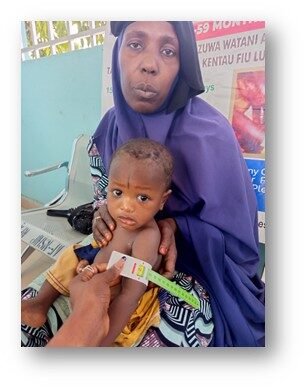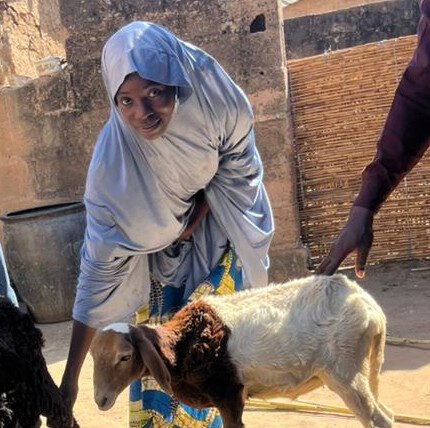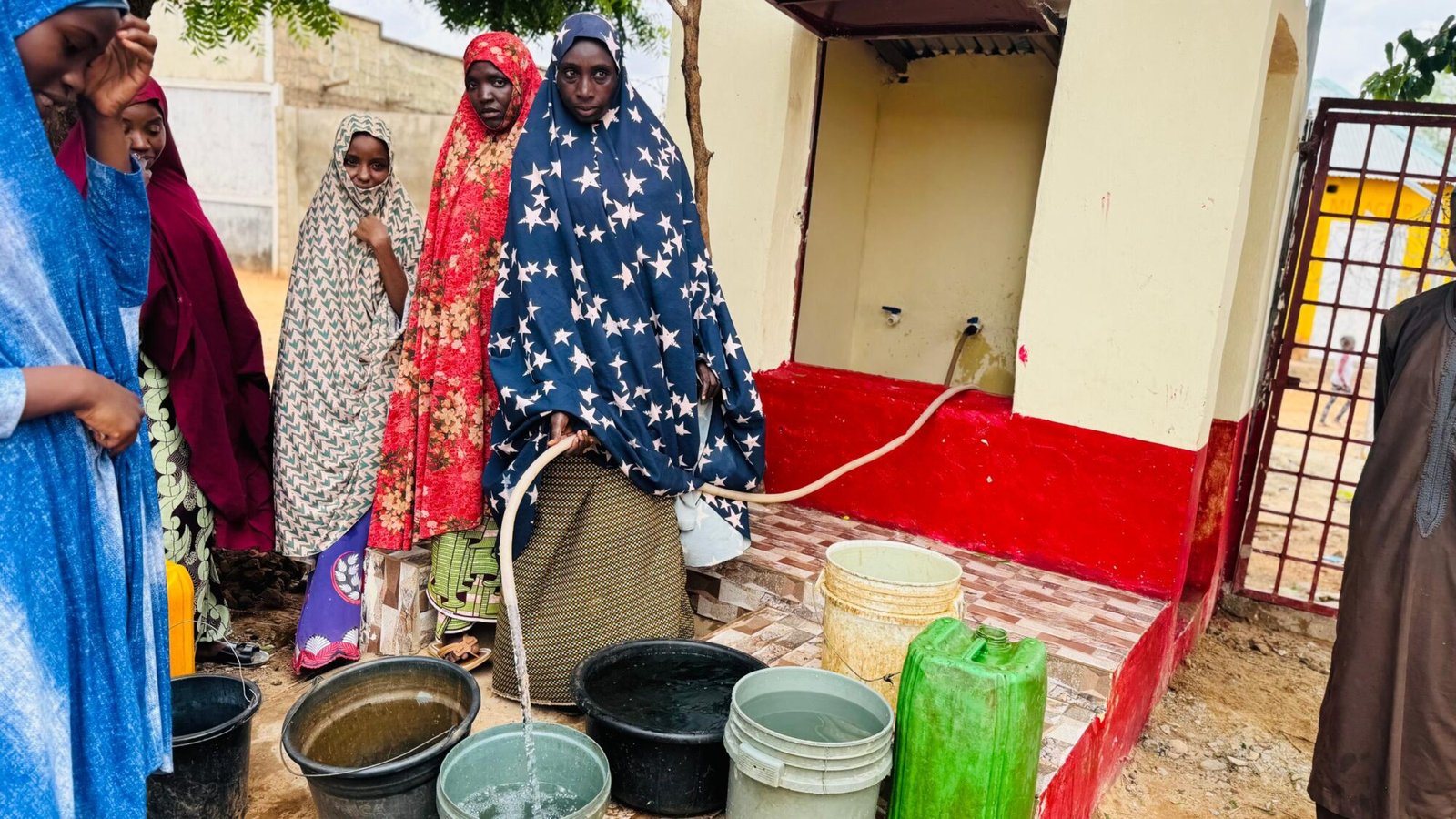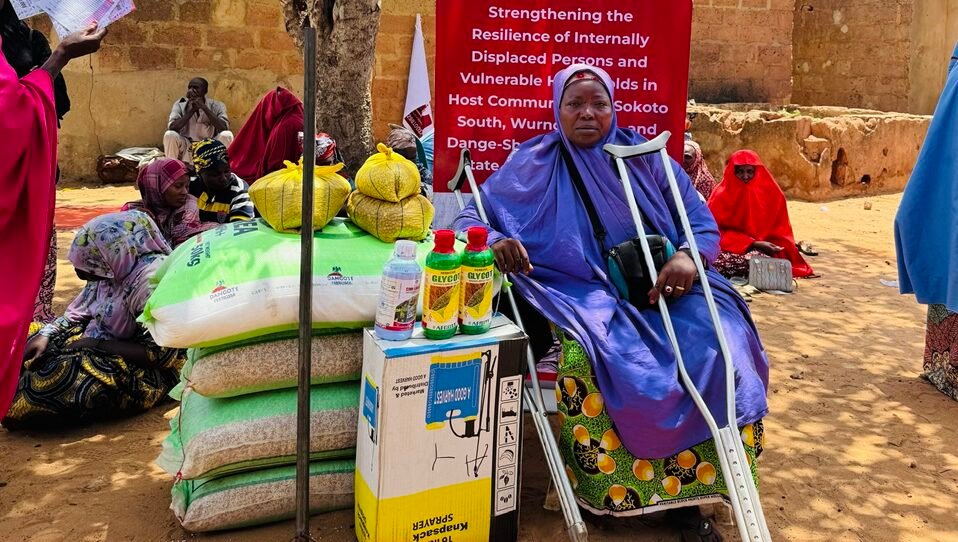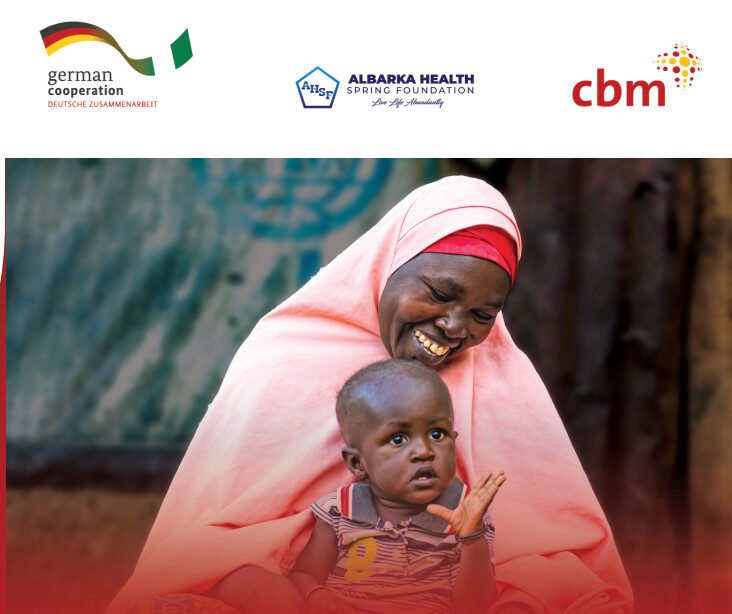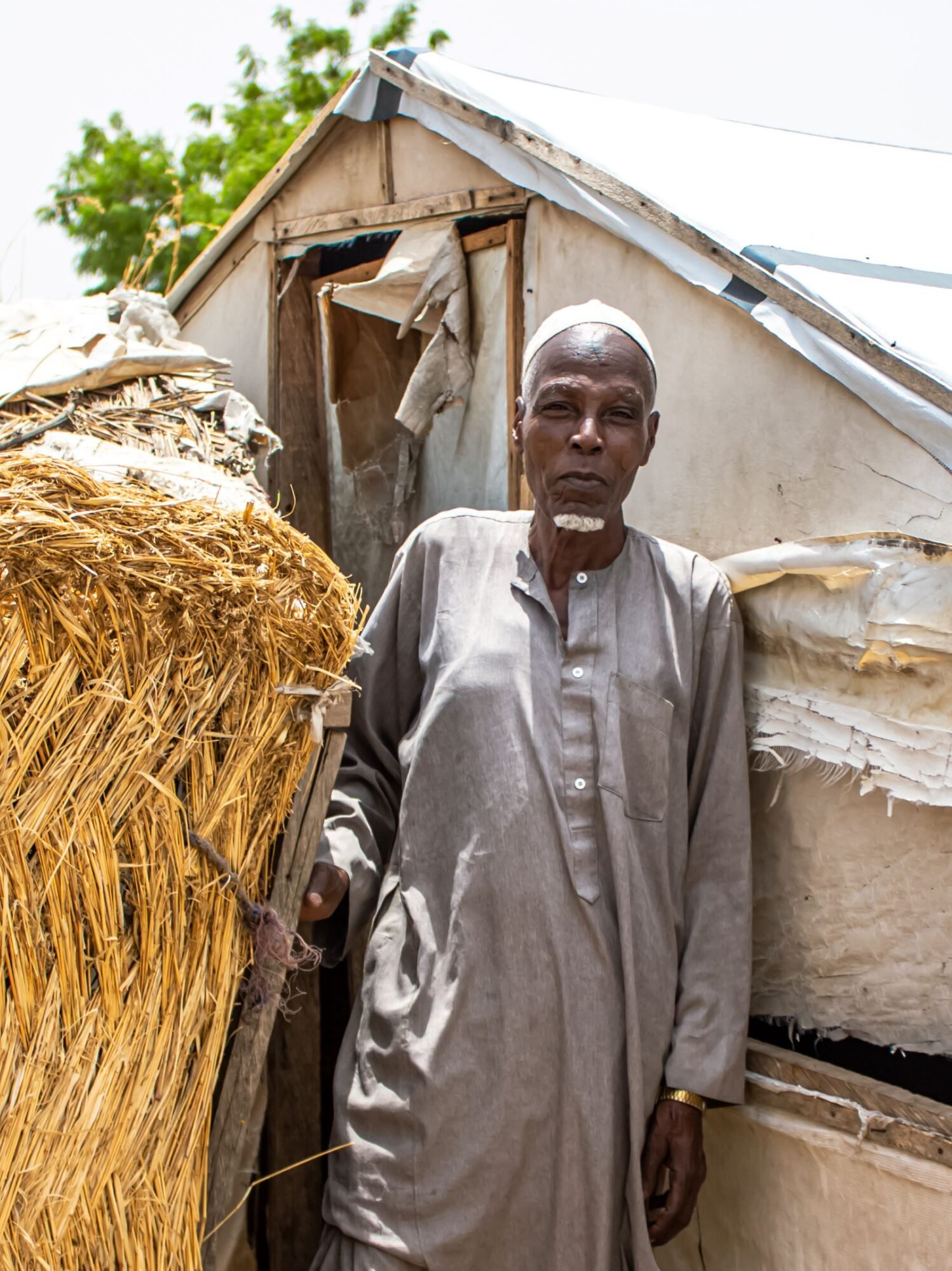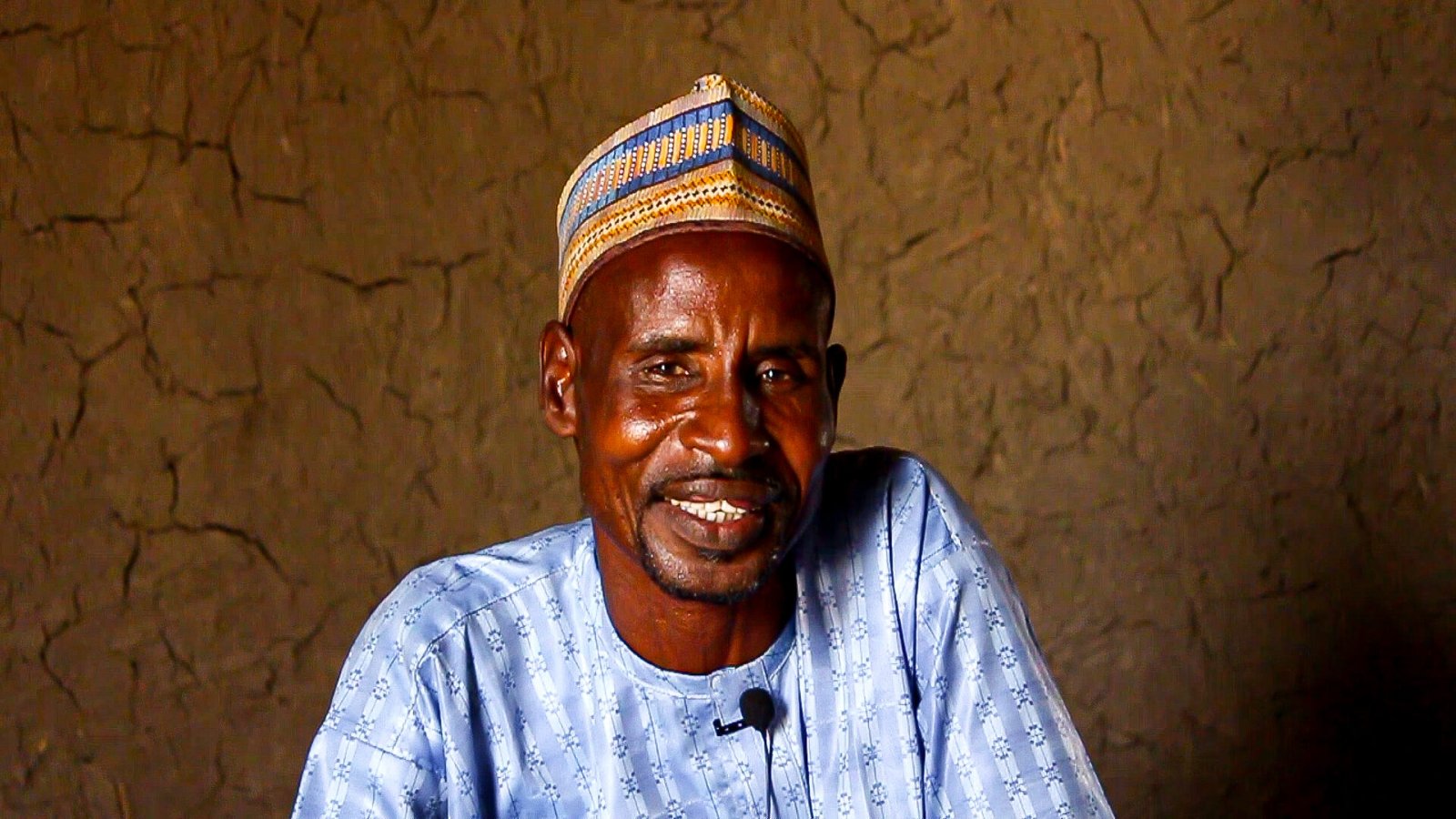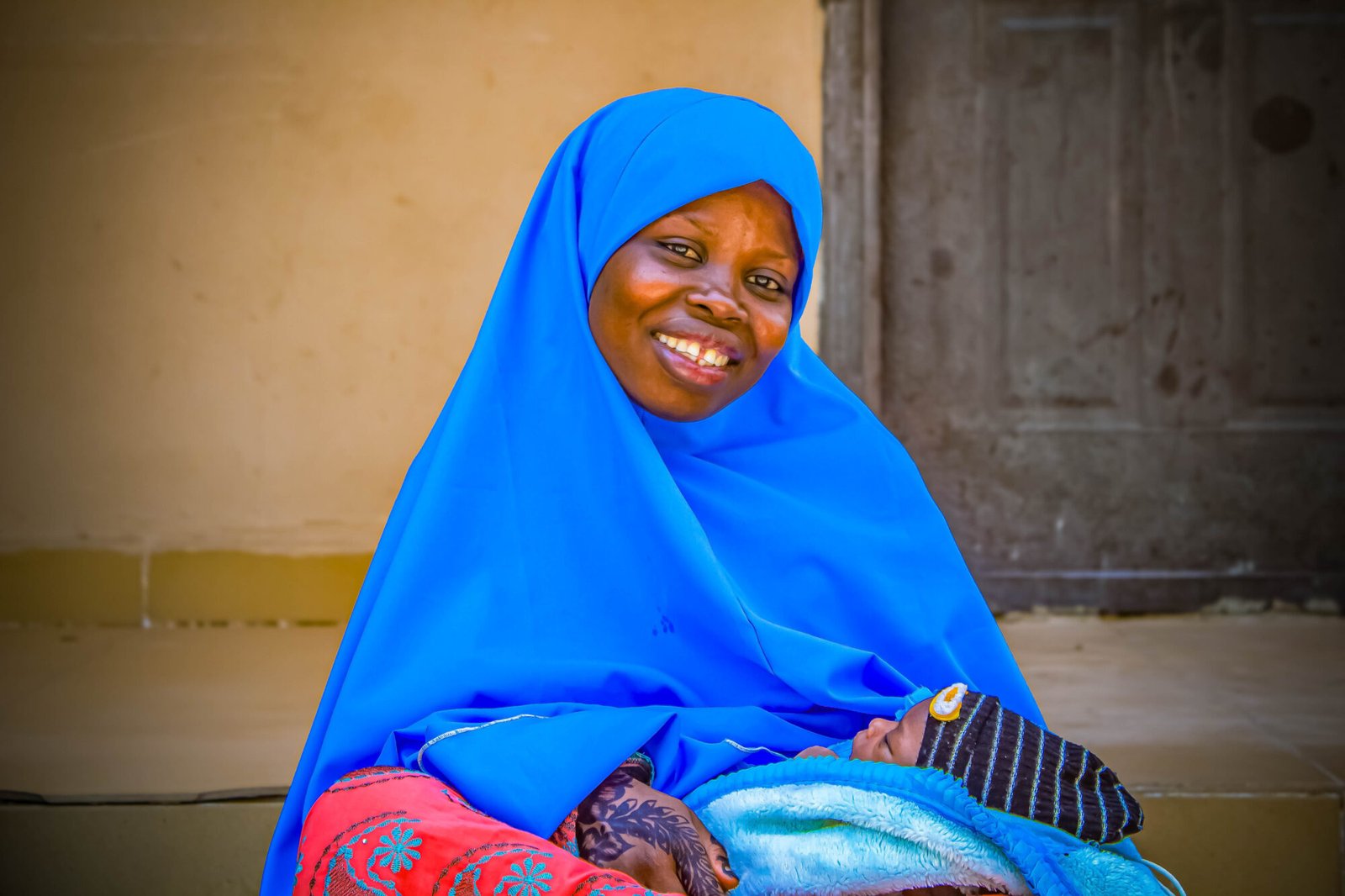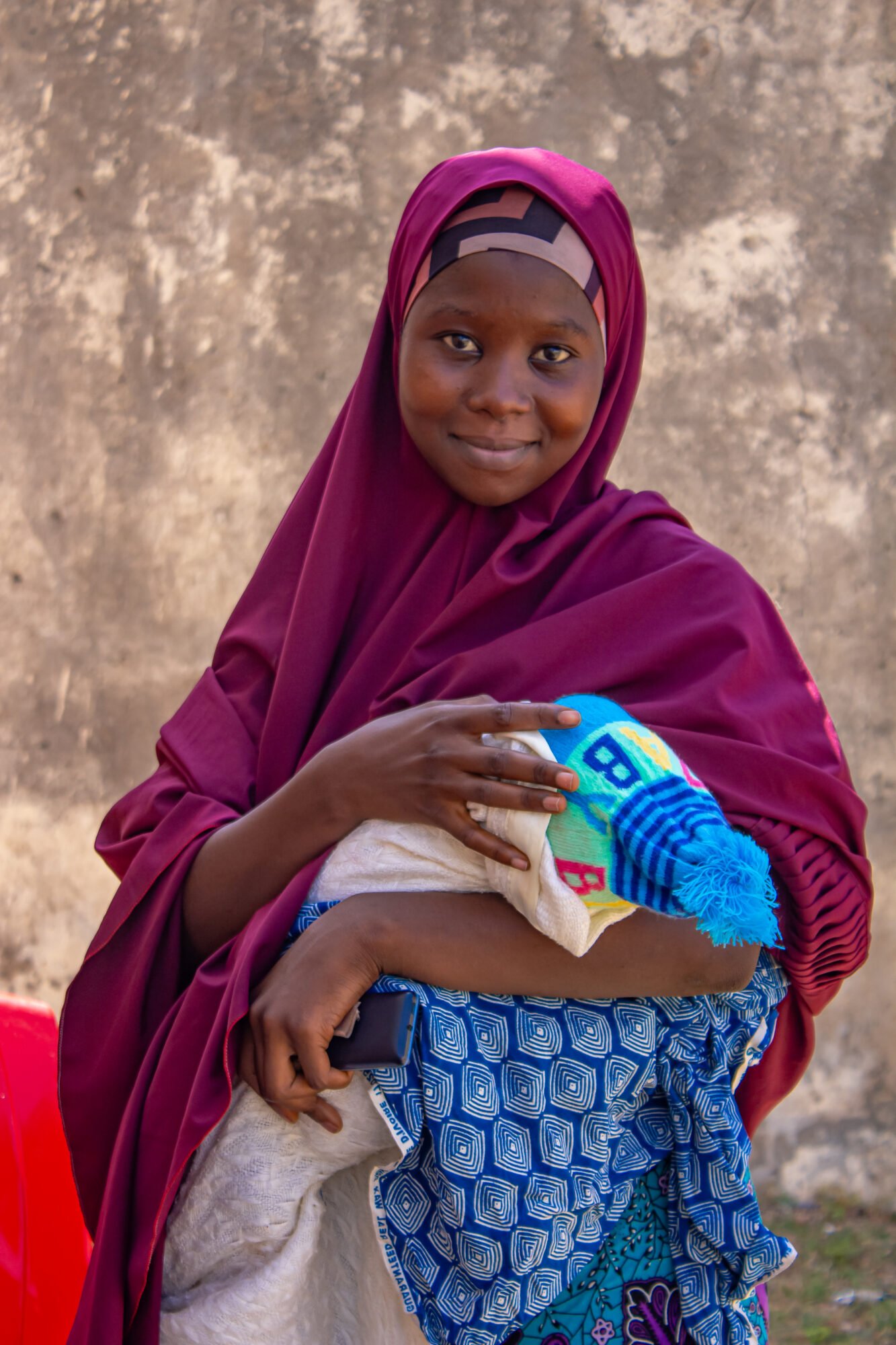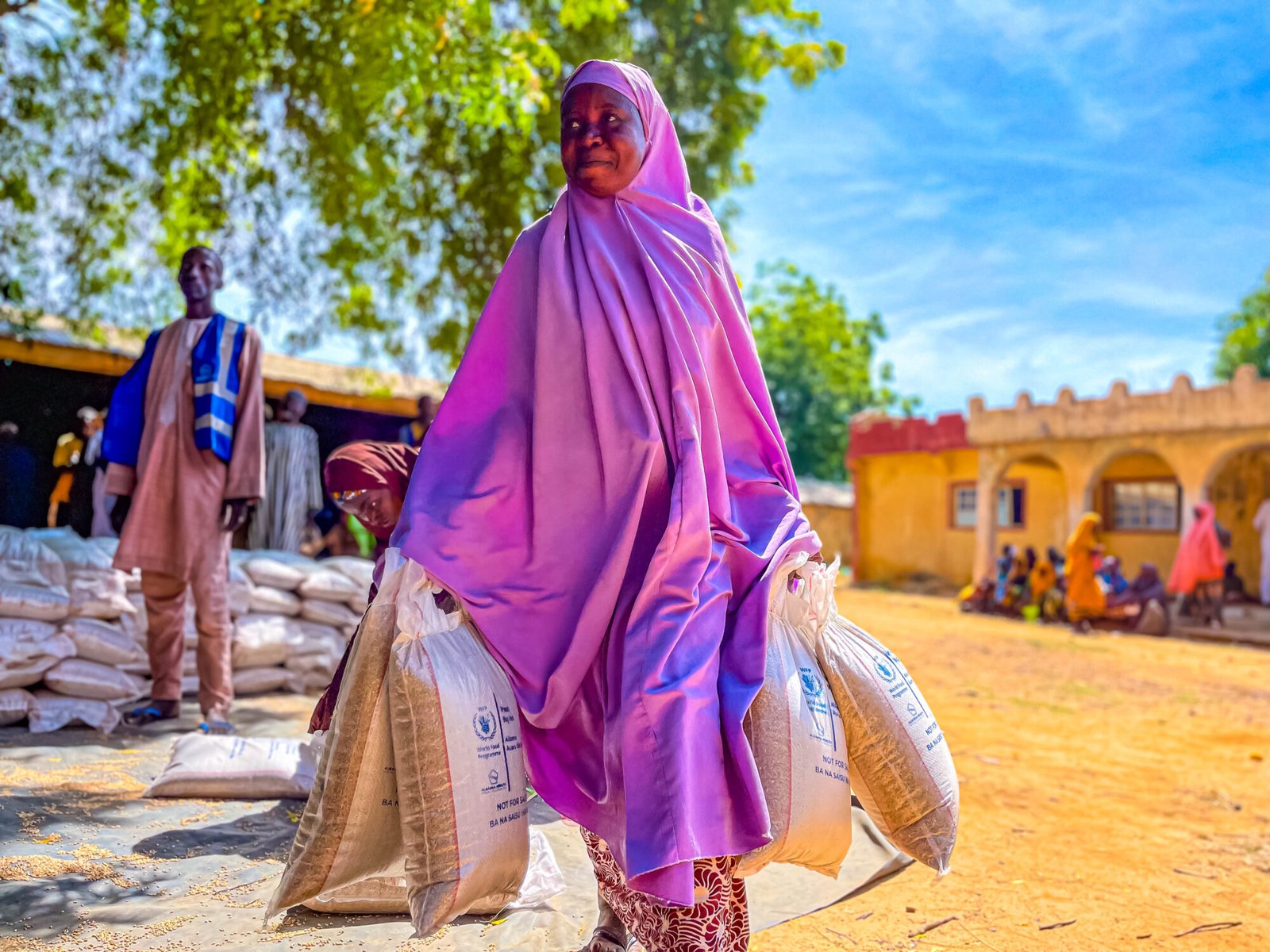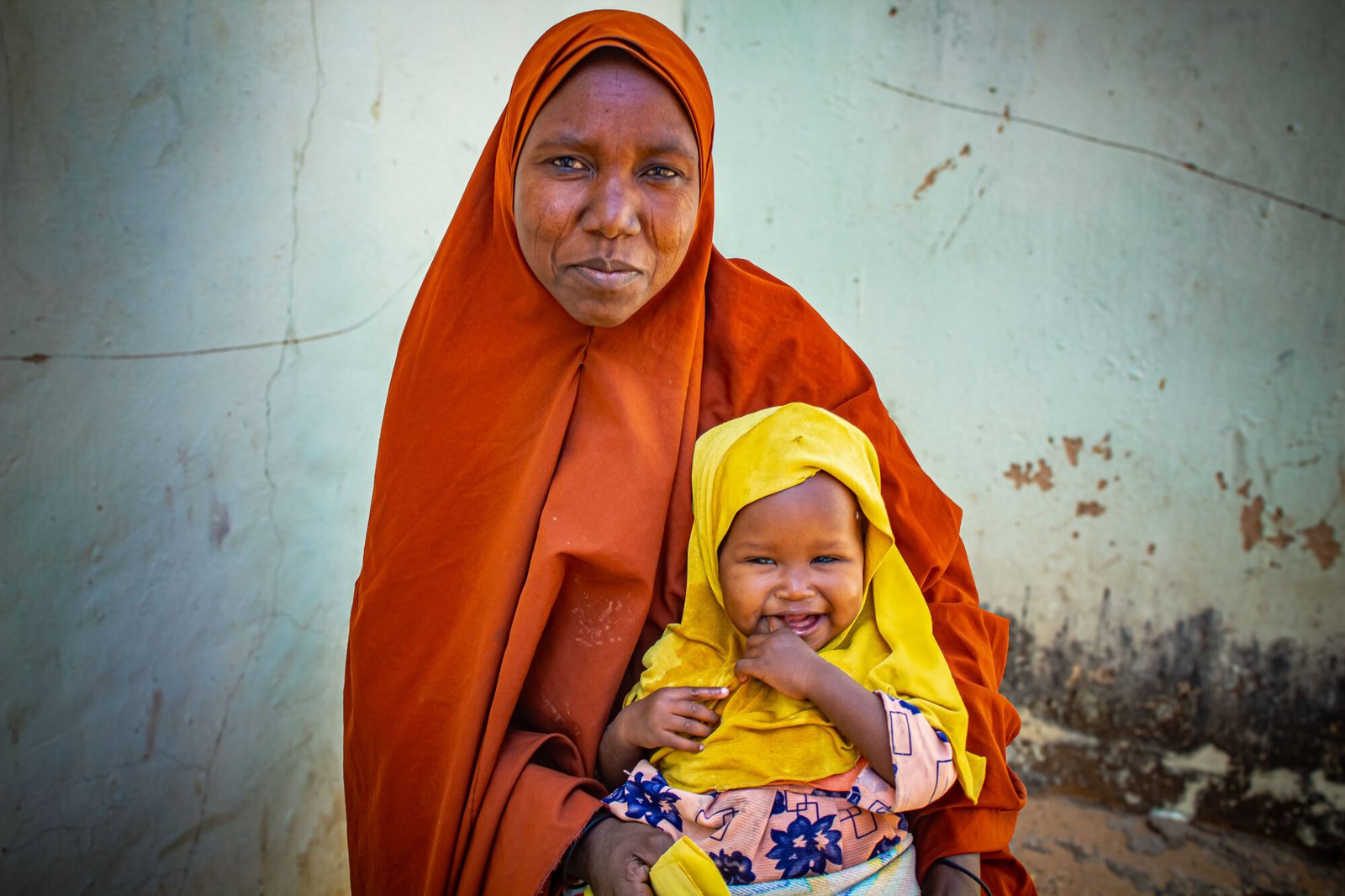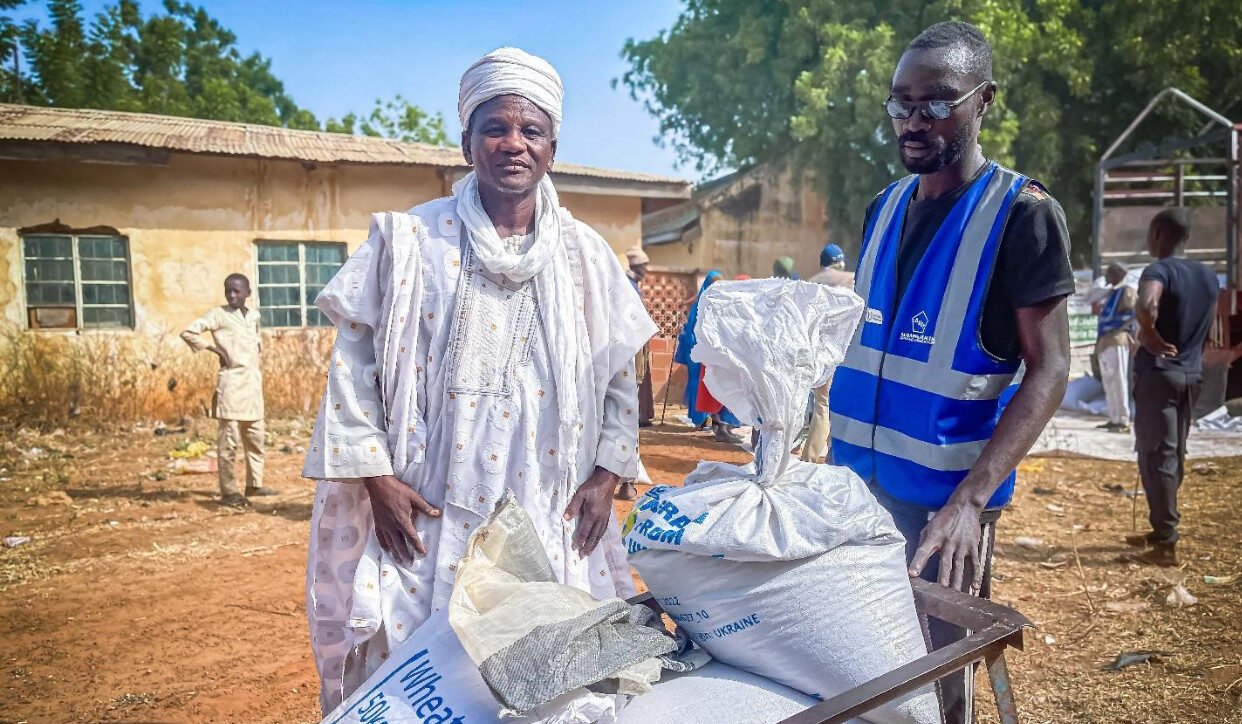Stakeholder participation is vital for ensuring that community intervention projects are effective, sustainable, and embraced by the community. This act fosters a collaborative approach where projects being implemented are not just for the community but are done with the community, leading to more meaningful and lasting outcomes. In a bid to achieve this, Ahmadu Sarki, a 65-year-old PMC from Gidan Kata of Illela LGA, Sokoto state, shares his commitment as an active participant in the Targeted Supplementary Feeding Program implemented by Albarka Health Spring Foundation (AHSF) in Illela LGA, funded by the World Food Programme (WFP).
In his words, “Starting from my family, I ensure my grandchildren who have been enrolled in the program by Albarka staff are properly fed with the Ready to-Use Supplementary Food (RUSF) being distributed to them on every visit.” “I also ensure that I caution their husbands and my sons, who are married too, to ensure that they support their wives in seeing to the recovery of their children”.
Ahmadu also extends this commitment to ensuring community participation not only amongst his family members and relatives but also to his entire community at large. This is achieved thorough organization of monthly meetings with all fathers within the community to encourage each other and discuss the importance of being active participants of the TSFP interventions at individual family levels.
“I play the role of passing information around my community to every man, informing them of the meeting dates and times. Yes! I am old and expected not to have much strength, but I have promised myself to use every strength I have left in me, to ensure our children get healthier and better in this community.” Ahmadu expressed.
All thanks to WFP for their support, AHSF has been able to strengthen community structures to take ownership and foster resilience through active engagement with stakeholders within the communities of Illela, Tangaza, and Rabah LGAs of Sokoto state, by ensuring monthly meetings with them. This meeting involves sharing project updates with them and getting feedback on their individual experiences.
AHSF continues to ensure that vulnerable groups in underserved communities are being reached with the services they deserve.

